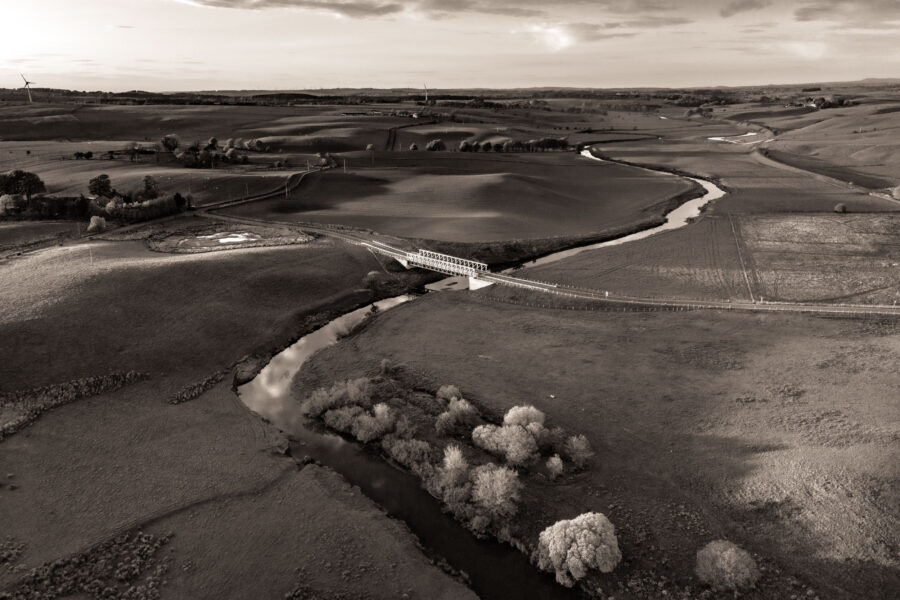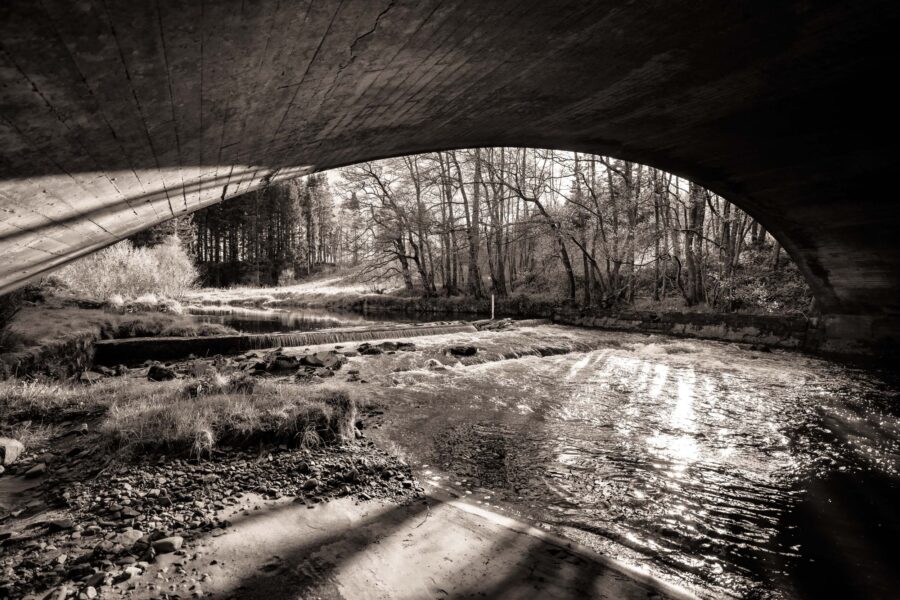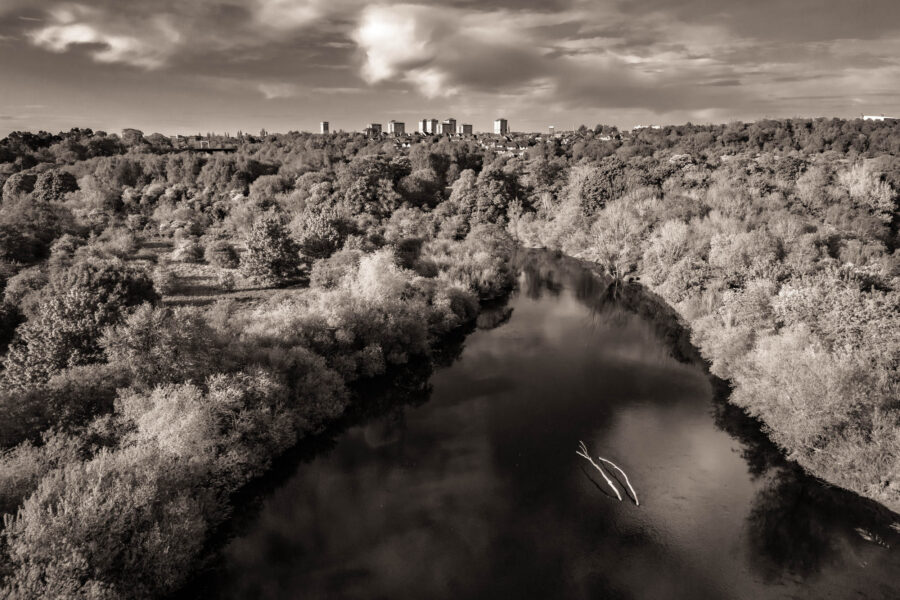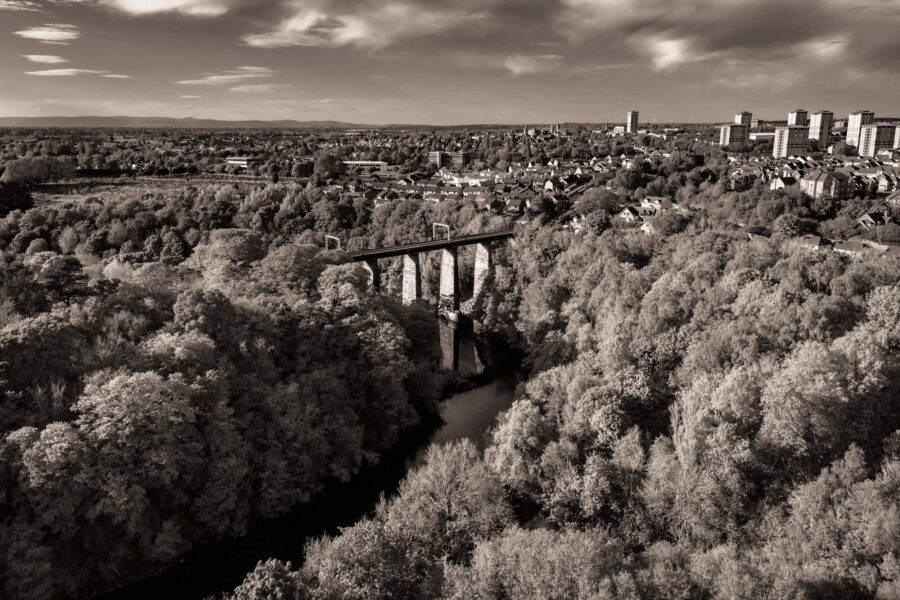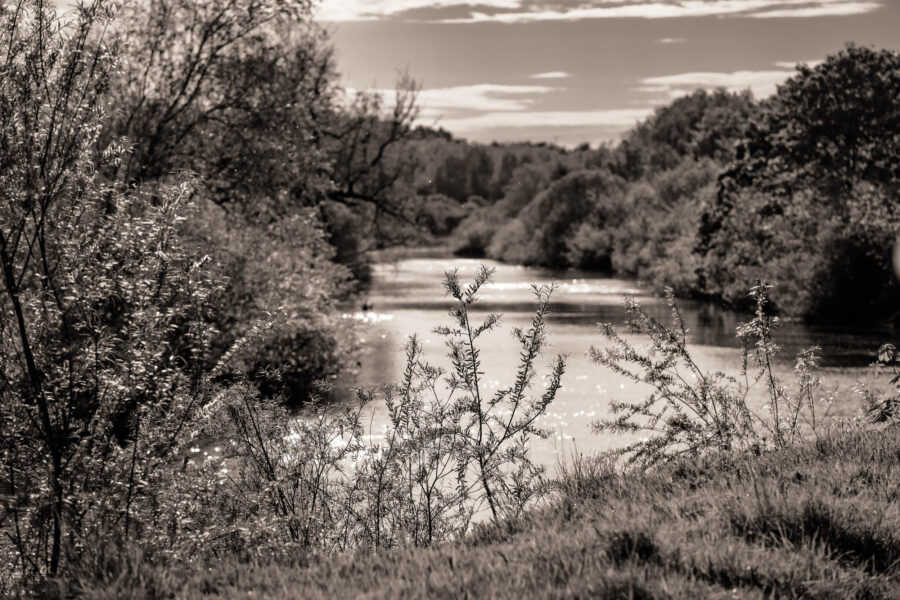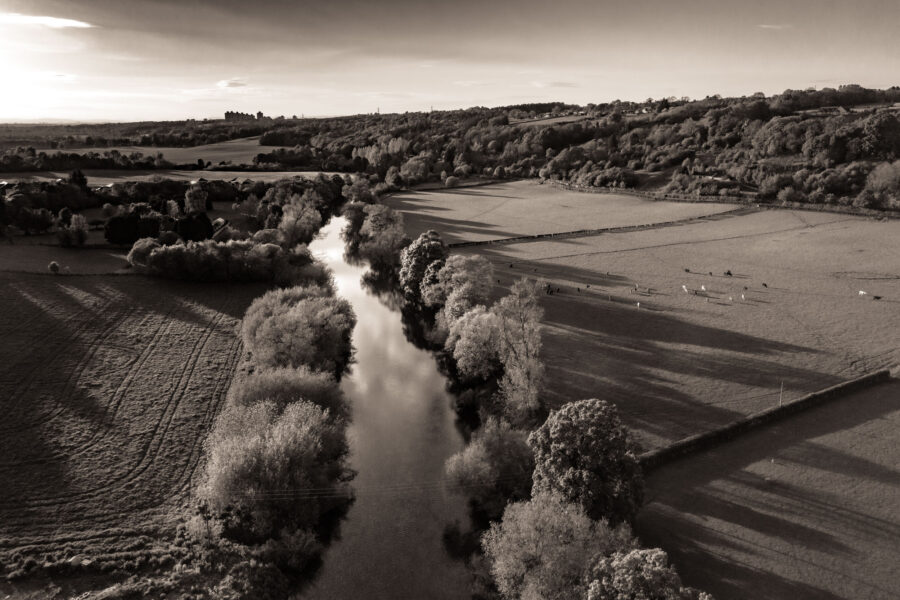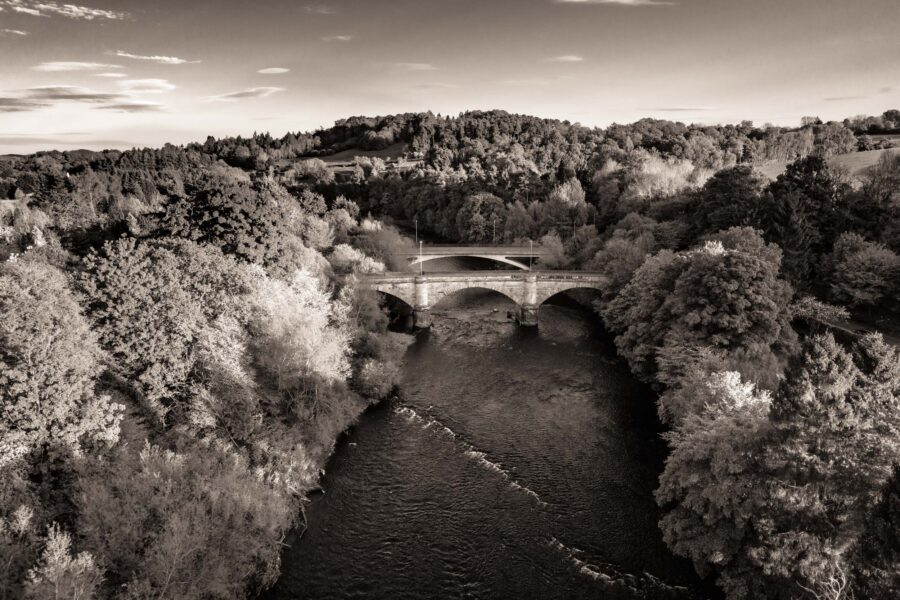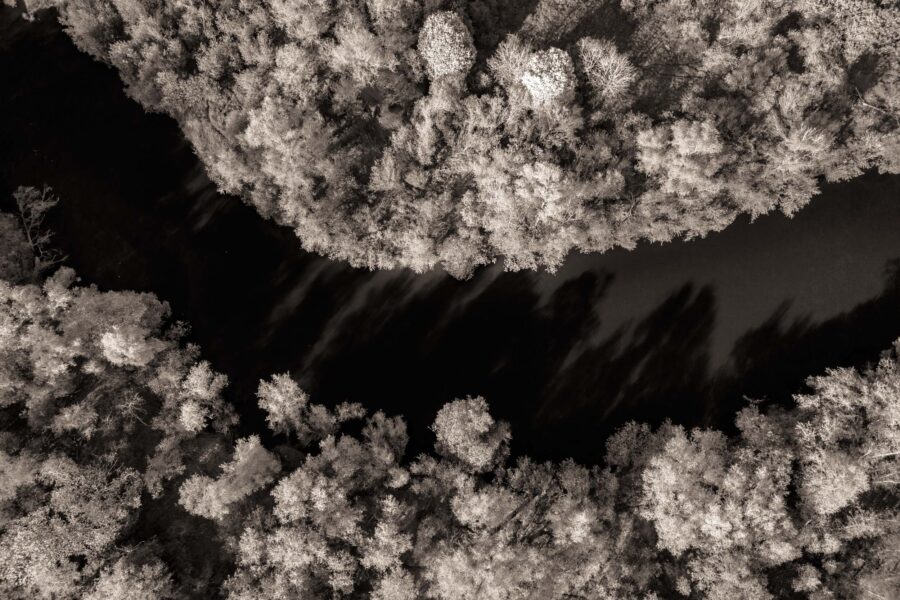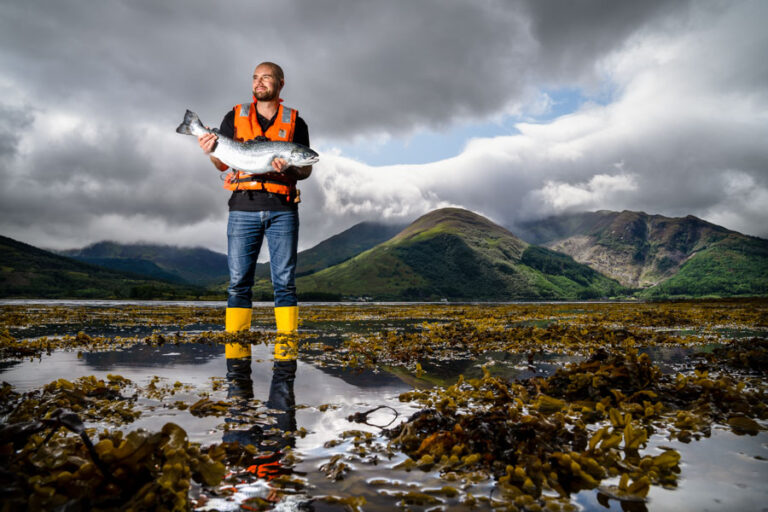Photographing the Rivers of the Clyde Valley
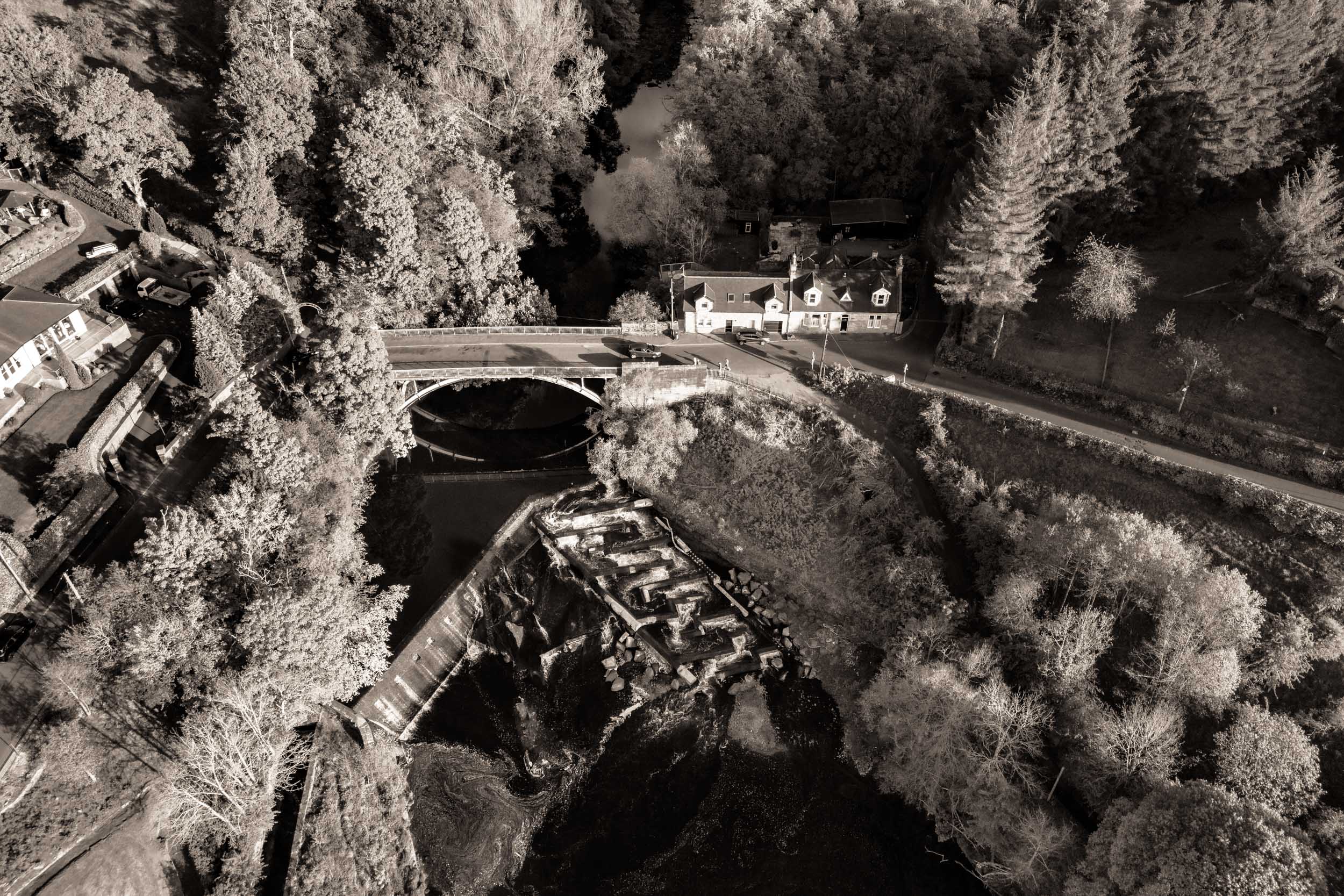
A step back in time
Earlier this year I was asked to photograph the five rivers of the Clyde Valley. It was an unusual commission for me as most of my work involves photographing people and buildings. I have done a range of work for the Clyde Valley Housing Association in recent years but this time they were looking for something different. Photographic artwork to display in their public spaces and meeting rooms which are named after the local rivers.
- The Clyde
- South Calder Water
- River Avon
- Garrion Bridges
- Douglas Water
I was excited to start the work but I didn’t realise it would turn into a journey though time. I chose to shoot in black and white to make a connection with the rich histories surrounding these waterways. Stripping away the distractions of colour helped connect my work to the past. It felt like the perfect way to honour the once-vital role these rivers played in transport, commerce and power for the region.
Rivers of the Clyde Valley: capturing time and nature from above
The Clyde at Baron’s Haugh
Baron’s Haugh is now a bird and wildlife reserve, a place of natural beauty and serenity. The contrast between this peaceful reserve and its industrial past with the Motherwell tower blocks dominating the horizon was striking. Birds drifted across the landscape while I focused on the quiet flow of the river, trying to capture both the calm of the present and the echo of busier times when these waters were bustling with activity.
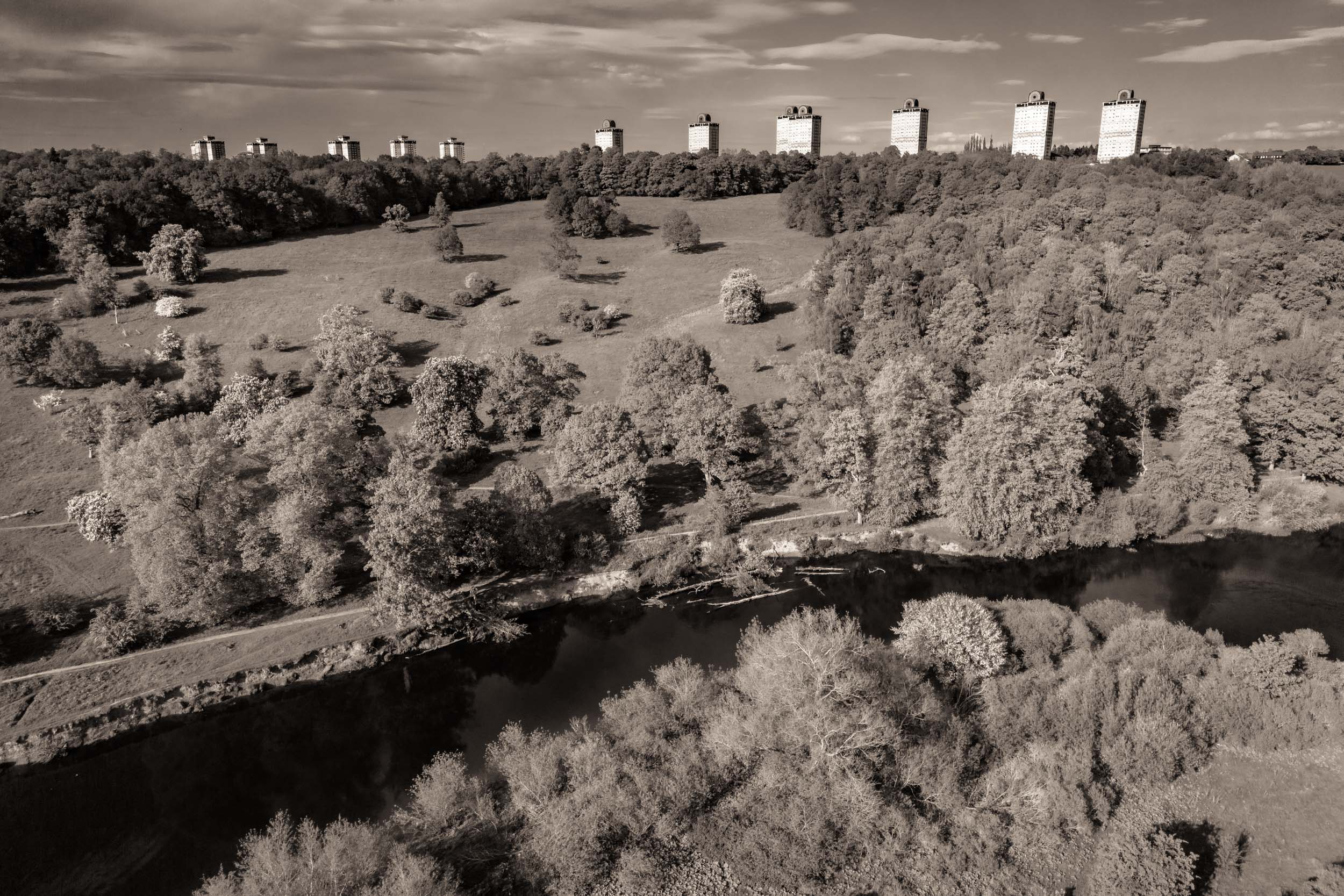
River Clyde at Baron’s Haugh, Clyde Valley.
South Calder Water at the Old Mill
Here, the Old Mill still stands but there is no wheel turning. Black and white photography heightened the feeling of history, as if time had stopped. The drone allowed me to capture the full scope of the site, showing the river’s relationship with the old mill from above the water. Thick trees now line the banks obscuring any views from on foot.

South Calder Water at The Old Mill, Motherwell.
River Avon at Millheugh
The River Avon’s beauty is undeniable, especially at Millheugh. The still waters contrasted with the ruined buildings on the beach, the weir, the salmon ladder and the Victorian bridges. The aerial perspective gave a sense of the power and place this river once held.
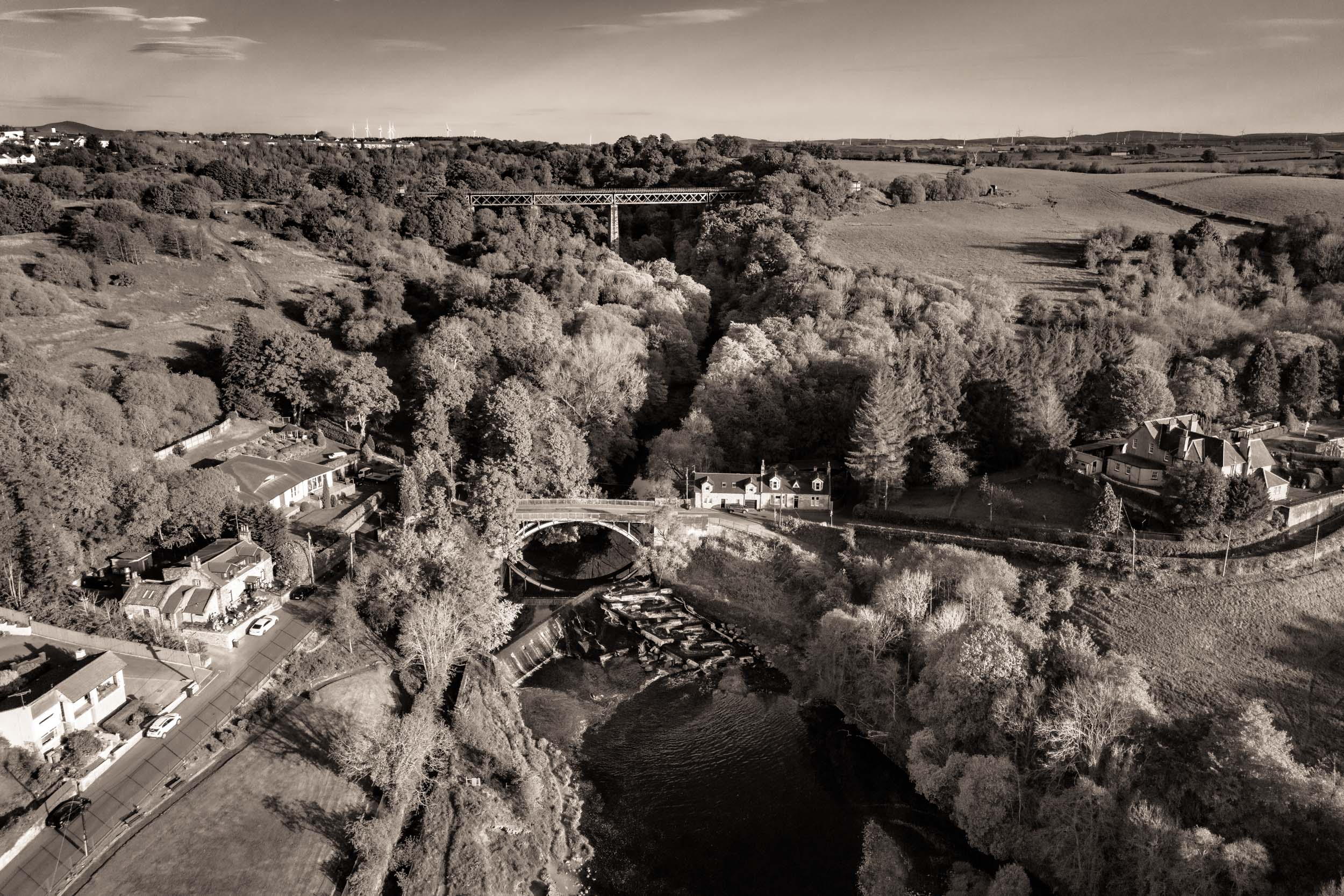
River Avon, Millheugh.
Garrion Bridges
The Victorian and modern bridges combine to form a roundabout spanning the River Clyde. Heavy lorries and busy traffic reminded me of the importance of these bridges as a transport link between North and South Lanarkshire. From the ground, they are unremarkable. But it was from the drone that I could capture the full scale of these crossings, and how they sit in the landscape with the river carving its path beneath them, linking past and present.
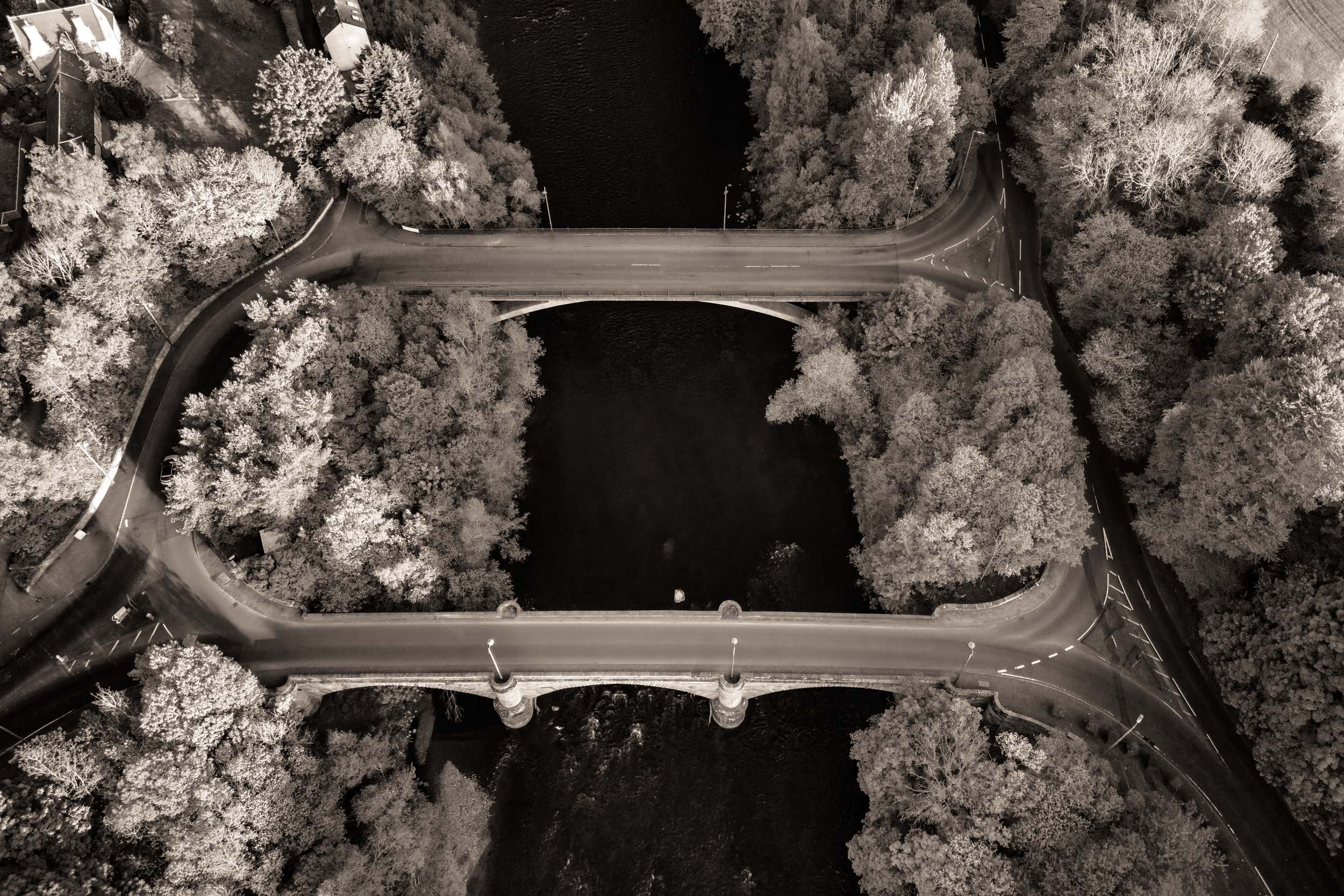
River Clyde at Garion Bridges, Lanarkshire.
Douglas Water to the south of Lanark
At Douglas Water, the peaceful flow of the river and tranquil fields of sheep on its banks seemed frozen in time. Despite the distant hum of modern life and the nearby motorway, the black and white tones helped convey the timelessness of the scene. The drone images show the river’s place within the surrounding landscape, isolated yet connected.
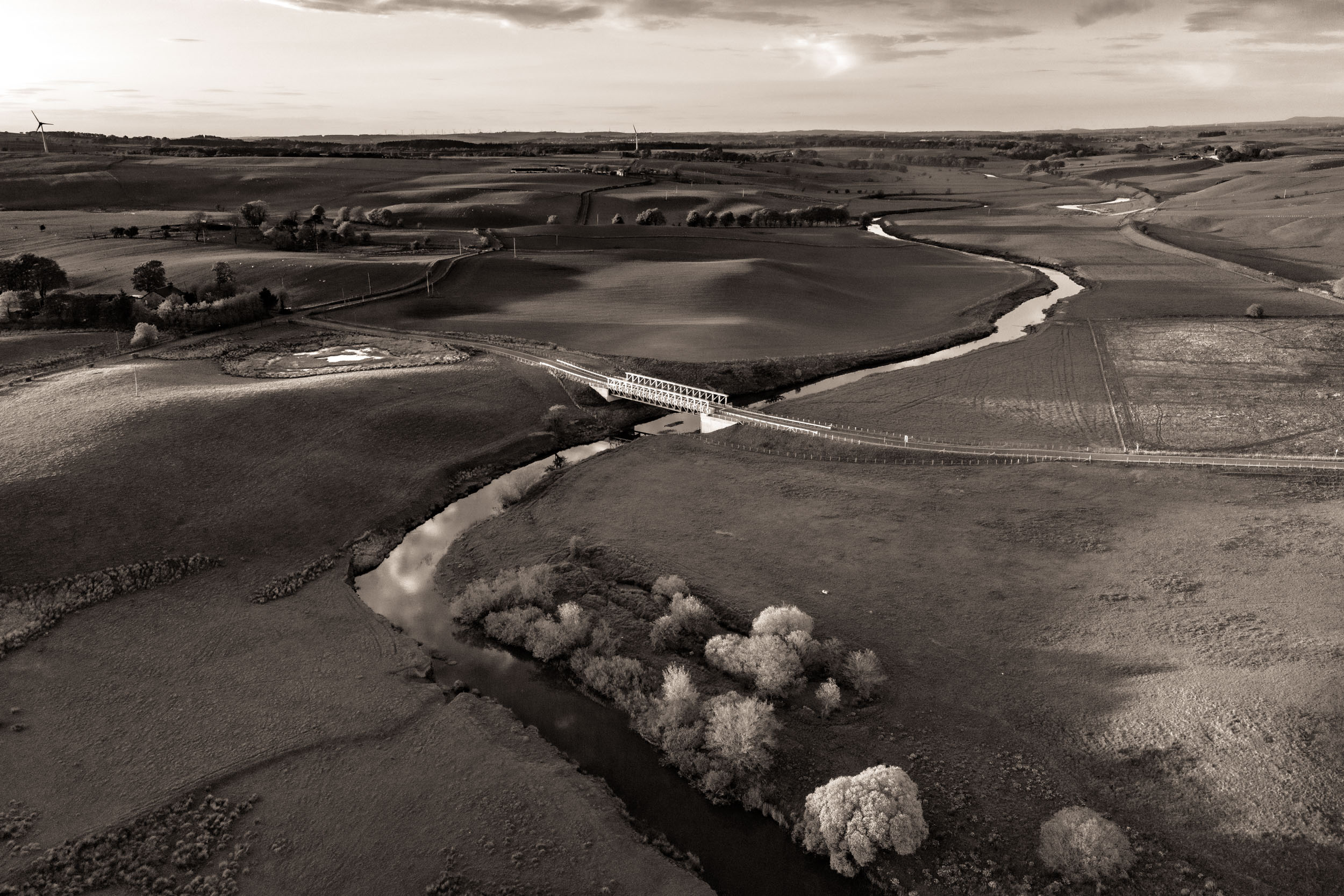
Douglas Water, rivers of the Clyde Valley.
Rediscovering the past in black and white
The black and white images echoed the timeless nature of these rivers. They have flowed through the centuries, witnessing the rise and fall of industries, the comings and goings of generations. I love black and white in many circumstances as it focuses the eye on textures, contrasts and the interplay of light and shadow. In this project it emphasises the structures and remnants of old mills, bridges, and buildings that have been slowly reclaimed by nature.
A new perspective from above
Flying a drone for some of the images added a new dimension to the narrative. The aerial perspective allowed me to capture the true shape and flow of the rivers, revealing their paths winding through the landscape. It gave a sense of scale that’s hard to appreciate from the ground. From above, the rivers’ connections to the surrounding land became even more apparent—how they shaped and were shaped by the communities they served. The drone shots also revealed features that are hidden or difficult to access by foot.
A Story of the Past and Present
Throughout this project, I found that photographing these rivers of the Clyde Valley wasn’t just about documenting the present. It was about peeling back the layers of history and showing how the rivers continue to flow through time. They have a constant presence, quietly minding their own business as the modern world hurries by.
See more work for CVHA

